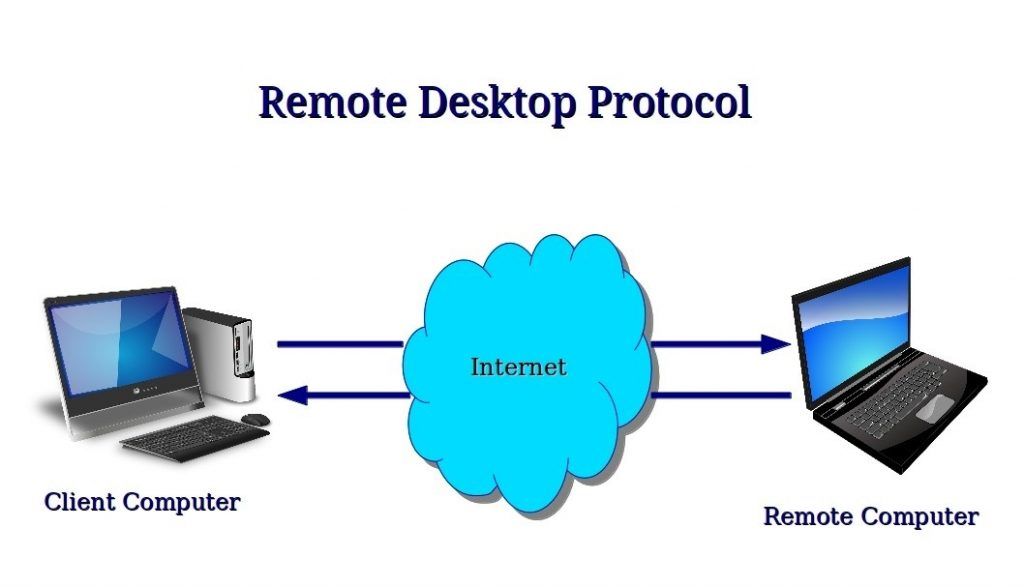The Integral Role of Rdp Singapore in Digital Ecosystem

Introduction:
In the bustling digital landscape of Singapore, Remote Desktop Protocol (RDP) has emerged as a cornerstone technology, playing a pivotal role in shaping the way businesses operate and individuals access and manage their digital resources. This article delves into the intricate interplay of RDP within Singapore's dynamic digital ecosystem, exploring its significance, impact, and the transformative influence it exerts on the realms of remote work, collaboration, and technological connectivity.
Empowering Remote Work:
Discuss how RDP facilitates seamless remote work, enabling professionals in RDP Singapore to access their workstations and critical applications from any location.
Highlight the role of RDP in fostering flexibility and work-life balance, a crucial aspect in Singapore's evolving work culture.
Catalyst for Collaborative Innovation:
Explore how RDP serves as a catalyst for collaborative innovation, allowing teams in Singapore to work together in real-time, irrespective of geographical constraints.
Discuss specific instances where RDP-driven collaboration has led to increased productivity and creativity in the digital workspace.
Singapore's Global Connectivity Hub:
Examine how RDP contributes to Singapore's status as a global connectivity hub, facilitating secure and efficient remote connections for international businesses and professionals.
Highlight the role of RDP in fostering cross-border collaborations and partnerships, leveraging Singapore's strategic geographical location.
Enhancing IT Infrastructure:
Discuss how RDP integrates into and enhances the IT infrastructure of businesses in Singapore, offering a secure and efficient method for remote access to servers and systems.
Explore specific use cases where RDP has streamlined IT operations and contributed to the overall efficiency of organizations.
Cybersecurity Measures and RDP:
Address the critical aspect of cybersecurity in Singapore's digital ecosystem and how RDP implementations incorporate robust security measures.
Discuss best practices and strategies to ensure secure RDP connections in the face of evolving cyber threats.
User Experience and Adaptability:
Explore how RDP prioritizes user experience, offering a seamless and adaptable interface for individuals accessing their digital resources.
Discuss features and optimizations that contribute to a user-friendly RDP experience in the diverse technological landscape of Singapore.
The Future Landscape:
Consider future trends and potential developments in RDP technology that could further shape Singapore's digital ecosystem.
Discuss how ongoing advancements may influence the role of RDP in fostering innovation, collaboration, and connectivity in the years to come.
Adaptive Connectivity in a Mobile Landscape:
Explore how RDP adapts to the increasingly mobile nature of Singapore's workforce, providing secure and efficient connectivity on various devices.
Discuss the role of RDP in supporting the proliferation of mobile devices and its contribution to the seamless integration of mobile and desktop environments.
Industry-Specific Applications:
Examine how RDP is tailored to meet the unique demands of various industries within Singapore, such as finance, healthcare, and manufacturing.
Highlight industry-specific use cases where RDP plays a crucial role in optimizing workflows and ensuring compliance with regulatory standards.
Cost-Efficiency and Resource Optimization:
Discuss the economic benefits of RDP implementation, emphasizing its role in reducing hardware costs and optimizing resource utilization.Explore how businesses in Singapore can leverage RDP to achieve cost-efficiency while maintaining high levels of productivity.
Education and Skill Development:
Explore the role of RDP in the educational sector, facilitating remote learning and skill development initiatives in Singapore.
Discuss how RDP contributes to the democratization of education, allowing individuals to access resources and educational platforms from any location.
Government and Public Services:
Examine the integration of RDP in government and public service operations, emphasizing its role in ensuring secure access to critical information and systems.
Discuss how RDP contributes to the efficiency and responsiveness of public services in Singapore.
Eco-Friendly Practices:
Explore how RDP can contribute to environmentally friendly practices by reducing the need for extensive hardware infrastructure.
Integration with Cloud Services:
Examine the synergy between RDP and cloud services, considering the prevalent adoption of cloud technologies in Singapore.
Discuss how RDP facilitates seamless integration with cloud platforms, enabling businesses to leverage scalable and flexible computing resources.
User Mobility and Workstyle Flexibility:
Explore how RDP contributes to the evolving workstyles in Singapore, emphasizing the importance of user mobility and flexibility.
Discuss how RDP enables users to switch between devices and locations without compromising productivity, supporting Singapore's dynamic work culture.
Conclusion:
As Singapore continues to embrace a digital-first approach, Remote Desktop Protocol stands as a linchpin in the country's digital ecosystem. Its role in empowering remote work, fostering collaboration, enhancing connectivity, fortifying cybersecurity, and ensuring a positive user experience positions RDP Singapore as a transformative force in the dynamic and ever-evolving landscape of Singapore's digital future.
Appreciate the creator